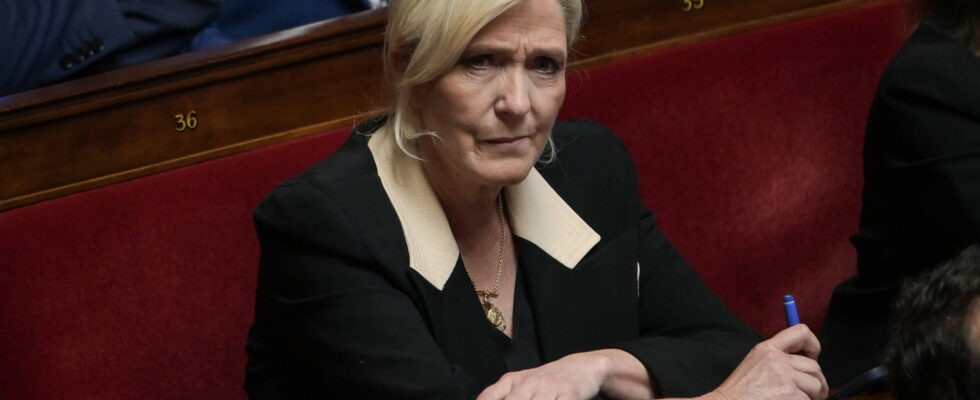Judged in the case of parliamentary assistants of the RN, Marine Le Pen risks being sentenced to a prison sentence and a sentence of ineligibility. The verdict, expected this Monday, March 31, promises to be decisive for its political future.
Will the report on the case of parliamentary assistants of the National Rally (RN) sound the end of the political career of Marine Le Pen ? The far -right deputy, tried for embezzlement of public funds and complicity in the embezzlement of public funds, faces a conviction to prison and a fine, but above all fears the pronunciation of an ineligibility sentence.
In addition to five years in prison, including three suspended, and a fine of 300,000 euros, the prosecution requested an ineligibility sentence of five years with provisional execution against Marine Le Pen. This means that if the requisitions are followed by the judges, then the elected official will not have the right to be a candidate for the next presidential election of 2027 as she envisages. Marine Le Pen has also denounced “outrageous” requisitions aimed at his “exclusion of political life” and the “ruin” of the RN.
The sentences pronounced against Marine Le Pen have already caused a lot of ink, but these are only requisitions and the judges can still decide to relax the elected representative or to condemn it to different, lower or heavier sorrows. In view of the law, the triple presidential candidate faces up to 10 years in prison, 1 million euros fine and 10 years of ineligibility. The judges can therefore free themselves from the requisitions in their verdict, but in the event of a conviction it will be difficult for Marine Le Pen to escape an ineligibility sentence. The fault of the Sapin 2 law which entered into force on December 11, 2016 which “makes” the pronouncement of this sentence against any person condemned to an offense undergoing probity, like the embezzlement of public funds according to article 432-15 of the penal code, “compulsory”.
A suspensive ineligibility or not?
If the verdict pronounced against Marine Le Pen in the case of parliamentary assistants raises the question of a sentence of an ineligibility, it also raises the question of the suspensive character or not of it. In principle, an ineligibility sentence is suspensive in the event of an appeal, that is to say that it is not applied in the event of recourse, but this is no longer the case when it is accompanied by a provisional execution. This clarification has the effect of making the penalty applicable despite the voices of appeal and until one of these appeals re -evaluates the conviction. A suspensive sentence would allow Marine Le Pen to present herself to the presidential election of 2027 given the time of appeal trials, while a sentence with provisional execution would definitively close this door and prevent Marine Le Pen from representing himself to a ballot, whatever it is, until 2030.
More than depriving Marine Le Pen of the next presidential election, a sentence of ineligibility would risk putting a stop on the political career of the deputy. Five years it is long, especially in politics and when you are kept away from all elections. And in the event of a possible return for the presidential election of 2032, the elected official of Pas-de-Calais would perhaps be weakened by her years of absence and distance. Note that the ineligibility sentence could be brought to 10 years repelling a return to 2040 and making it even more difficult.
The fact remains that Marine Le Pen can hang on to her deputy headquarters, even in the event of a conviction and ineligibility. The Constitutional Council refuses to deprive an elected representative of an ongoing mandate as long as the conviction is not final, that is to say confirmed in appeal and in cassation. The leader of RN deputies could therefore theoretically take part in the political game until the next legislative elections, which are planned in 2027 to less than a new dissolution of the National Assembly, an option which will be possible from the summer of 2025.
